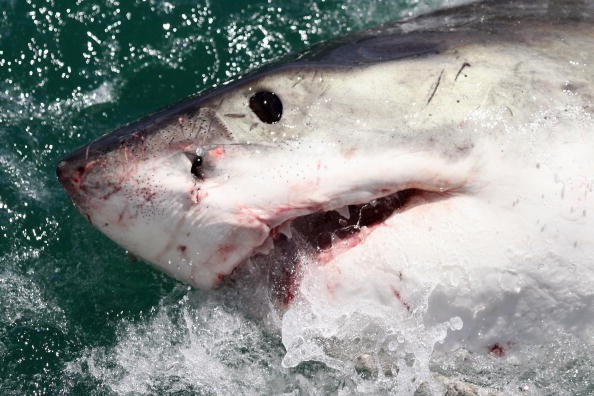A great white shark recently mauled a seal in calm waters close to the Cape Cod coast, and an observer aboard a boat recorded the incident on camera.

Footage of Great White Shark's Attack on a Seal
Despite the fact that the peak shark season along coastal Massachusetts is usually August through October, great white sharks keep cruising and searching for prey in coastal waters well into November.
The Atlantic White Shark Conservancy (AWSC), a shark conservation nonprofit, shared footage of the incident in a tweet on Nov. 19.
A boater identified as R. Nossa recorded two video clips, each lasting 32 seconds and showing a shark's dorsal fin suddenly rising above the water's surface, followed by so much thrashing and a pool of what looks like blood.
Since most of the incident happened at a distance and underwater, it's difficult to see what's going on in the video, but AWSC officials classified the incident as "seal predation" in the tweet.
The harbour seal (Phoca vitulina vitulina) and the grey seal (Halichoerus grypus atlantica) are the most common seals to be spotted on Cape Cod, with harbour seals being the most common.
The Center for Coastal Studies in Provincetown, Massachusetts states that great white sharks consume both species, according to Live Science.
Great White Sharks: Frequent Visitors to the Cape Cod
The great white shark (Carcharodon carcharias) is one of the most common shark species on the planet. According to the ReefQuest Centre for Shark Research in Vancouver, Canada, they live in coastal and offshore seas across the globe where sea surface temperatures vary from 45 to 81 degrees Fahrenheit (7 to 27 degrees Celsius).
According to AWSC, the sharks are frequent visitor to the Cape Cod region, particularly during the "peak season" months of late summer and early autumn.
In recent decades, conservation efforts to safeguard sharks and seals have resulted in population booms for both predator and prey.
As a result, there has been an increase in shark sightings in New England seas, with some sharks approaching the coast as near as 10 feet (3 metres), according to the report by Boston University officials in September 2020.

Cases of Shark Attack
In a statement, Greg Skomal, a fisheries scientist with the Massachusetts Division of Marine Fisheries, said that seal populations are reacting to conservation and increasing in locations where they used to reside in the United States and Canada. In addition, the white shark population has been on the rise.
Previously, Live Science reported that researchers discovered that great white sharks may maul humans because they think they are seals and not because they prefer human flesh.
According to the Yearly Worldwide Shark Attack Summary published by the Florida Museum of Natural History's International Shark Attack File, such attacks hardly occur, with only about 57 cases of unprovoked attacks.
Also Read : Experts Reveal Most Great White Shark Attacks on Humans are Cases of 'Mistaken Identity'
For more news, updates about shark attacks and similar topics don't forget to follow Nature World News!
© 2025 NatureWorldNews.com All rights reserved. Do not reproduce without permission.





